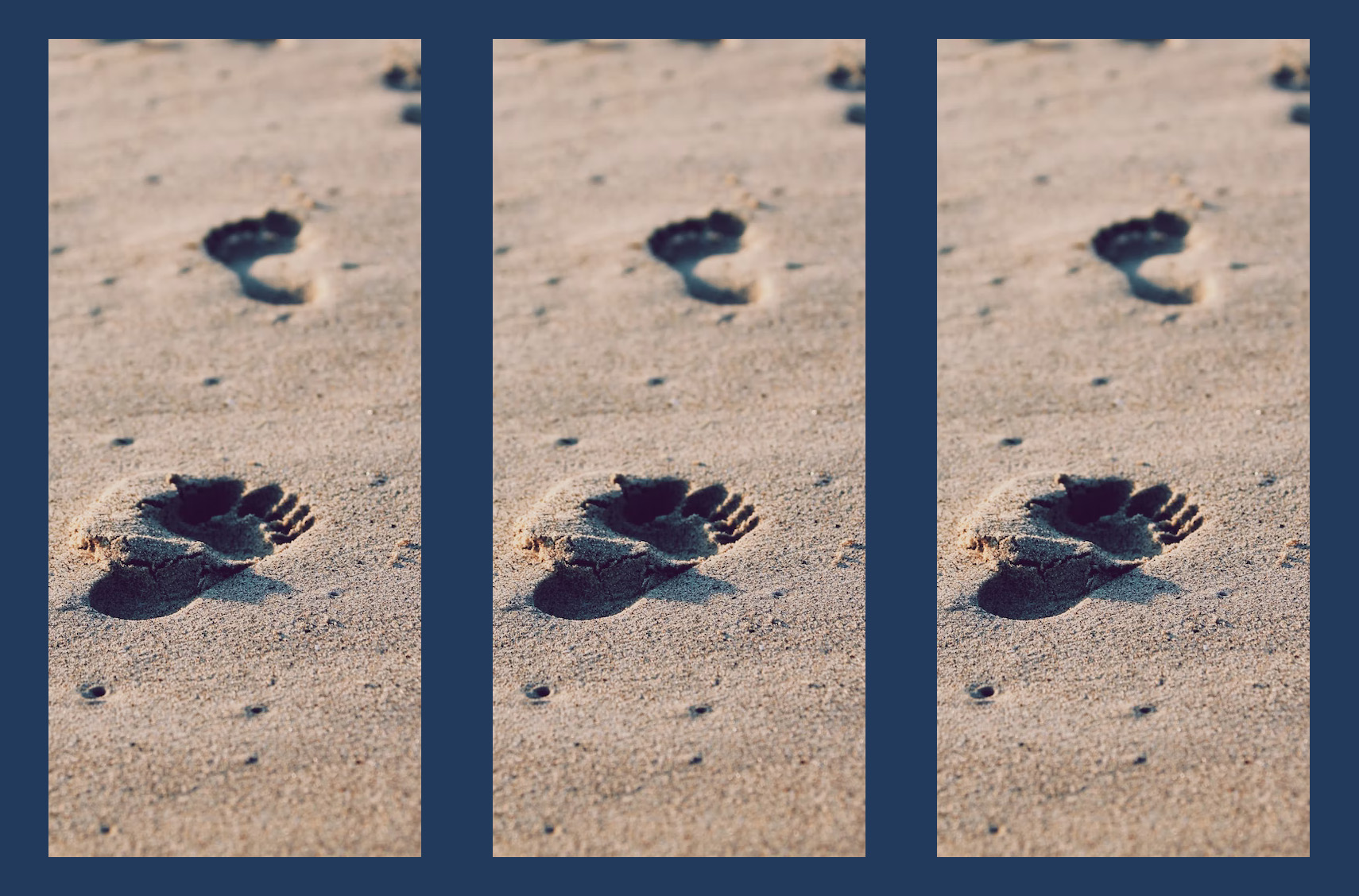Content warning for mentions of homophobia, transphobia, sexual harassment and violence.
“Tov li b’mahaneh ramah“— Hebrew, “it’s good for me at Camp Ramah.” A common phrase used by Ramah campers, often used in camp songs or sarcastically.
I have an image in my mind that feels almost too vivid to be a dream. It’s the encapsulation of all my worst fears from my time at Camp Ramah in the Berkshires; every time my boundaries were crossed, every time I was touched or flashed without my consent. I imagine someone “teabagging” me—placing his genitals onto my face. It was a popular threat at camp, especially to sleeping campers who resided in “boys’ cabins”.
I had nightmares about waking up to someone on my face, coughing and shouting, leaping out of bed in a panic. Fuck you. Dickhead. Get fucked. I do remember—and these memories are much more solid—being threatened with teabagging and countless other varieties of sexual violence. I remember being terrified to fall asleep or participate in bunk activities, lest I be hurt, violated, or worse.
I started at Camp Ramah in the Berkshires in 2011, driven to Ramah by my community at my Solomon Schechter elementary school and Conservative synagogue, both communities affiliated with Ramah and the Conservative movement. I spent four summers at camp. Some were, for the most part, good summers. But any positive experiences I had were shaded by a culture of sexual violence and harassment, a culture reflected in recent allegations of sexual assault at Ramah Berkshires, seven years after I first started at camp.
Very quickly, I learned some things about life at Ramah. First, that complaining was useless. I would go to counselors with frustrations—my schedule doesn’t work, I want to talk to my parents, I’m tired, I’m out of socks—and be ignored, told to write snail mail letters to my parents, or pawned off to the infirmary, where I might get a pill, a pat on the back, and then shown out the door.
Second, I learned that the rules just didn’t apply to some kids, because their parents made them exceptions: donors’ kids, rabbis’ kids, staff members’ kids—they just never got in trouble. They got special privileges, like parent visits, phone calls, food, and even a direct line to the camp administration.
Finally, I learned that sexual harassment was cool. Counselors would come into our bunks at night and tell us wild stories about late night snack heists and then pivot straight to telling us about so-called pranks from their days as campers, when they had sexually harassed other campers. We ate it up. In our minds, the fun and harmless rule-breaking was no different than treating one another’s bodies as fodder for our entertainment. Sexual violence was celebrated, encouraged, uplifted, and glorified, even as it was, technically, against the rules.
By 2013, my third year, I was starting to struggle with what I now recognize as gender dysphoria and anxiety. I felt more isolated from the other boys, less inclined to participate in boys’ culture at camp. That summer, as many of us began puberty, the culture became markedly worse. Sex and girls became an obsession for everyone. One boy masturbated in his bed, audible to the entire bunk; another masturbated in front of all of us. People walked around with their genitals exposed at inappropriate times, or worse, ripped towels off other campers or yanked open shower curtains. Other times, campers would just grab other campers’ genitals or chest. All anyone could talk about was Shabbat walks, the sexiest seventh graders in our edah (age group), or crude baseball metaphors for sex that they most certainly weren’t having.
Our counselors, all college-aged men, either participated in or ignored this talk. Occasionally, they would vaguely tell us to cut it out, but all we were doing was copying the kind of behavior they told us was cool. We would play games where the loser would have to expose themselves in some way and was pilloried if they refused. Refusing to play, of course, meant you were a ‘pussy.’ All of this and more happened to me, or happened in front of me. The summer I imagined being teabagged was the summer I learned to hate myself and my body.
There was a gay kid a few edot above me. I don’t know if he was actually out as gay, or just effeminate and friends with a group of girls. Faggot, we would whisper. Homo. I think I was mostly just jealous he had girls to be friends with. Another camper, who would later become one of my best friends in high school, had a sibling who had just come out as trans. Tranny, people whispered. That one hurt more. I didn’t know why. Again, no counselors intervened.
I was miserable, barely holding it together. I cried all the time. The behavior in my bunk was all just “normal”: boys will be boys, after all. Our counselors barely blinked at any of this, probably because their camp experience hadn’t been that different. They didn’t really know how to handle mental health crises and weren’t trained in this type of mental health first aid. One counselor tried to listen. The others, not so much. The rashei edot (unit leaders) were overworked, the mental health staff often were unhelpful. No one had time to listen. I walked away from camp swearing I would never go back. A year later, I came out as trans.
Ramah contributed to the forces that drove me away from Judaism as I was coming out. I avoided my youth group, United Synagogue Youth (USY), because so many people I knew from Ramah were there and the culture felt incredibly similar to what I hated about camp. I tried to leave my Schechter school, although in the end chose to stay because I didn’t want to transition to a new school. Were it not for that choice, I would have totally disengaged from Judaism in no small part because of my experience at Ramah. Even then, I only returned to a committed Jewish life because of my experiences at Keshet’s LGBTQ Teen Shabbatonim, where I realized for the first time that Jewish immersive experiences could be positive, supportive, and uplifting.
In 2017, two years after I came out, three years after my last summer at camp, I returned to camp to pick up my sister from USY Encampment, a youth retreat held at Ramah Berkshires. I saw a rainbow flag on one of the buildings. When I got home, I cried. It just looked wrong, seeing a queer flag in the same place that caused me so much shame and pain on account of my gender and sexuality. I talked about it for months in therapy, processing it as trauma related to my gender and coming out. It wasn’t until last summer, talking to some friends who worked in other Jewish summer camps, that I realized what had happened to me at camp was sexual harassment. It wasn’t just me; it was a persistent, never-ending culture of sexual harassment among boys.
It came as no surprise to me when the news broke that Ramah Berkshires was being sued for failing to protect a girl who was allegedly sexually assaulted by a boy at camp in 2018. That had always been the culture at camp, going back all the way to the 1970s. But this culture is not limited to Ramah Berkshires, and it most certainly shapes the toxic hookup culture in the youth groups often connected to camps. The Jane Doe in the court case isn’t alone in her experience, and Ramah Berkshires is hardly alone in its failings.
The camp director’s responses documented in the lawsuit include refusing to tell the camper’s parents about the assault, trying to persuade her into silence, potentially failing to fulfill their obligations as mandated reporters, and keeping the alleged perpetrator in camp for a month. If the allegations are accurate, they are not just an individual problem. They reflect a broader camp culture—one which celebrates boundary violations, sexual harassment, and misogyny. They reflect a camp culture which refuses to listen and react to campers in need. They reflect a camp culture where some kids can get away with anything. Changing this culture requires a shift in thinking about how we staff camps, how we build culture at camps, and how we protect children.
The people that failed the most in my camp experience weren’t other campers, but the staff. Camp staff failed to create a culture of safety and equity, and often actively encouraged the opposite; sexual violence, harassment, and bullying. Staff failed to be a resource I and my friends could go to for mental health needs and concerns about unacceptable behavior between campers. Staff, at all levels, from top to bottom, failed to create an environment where we could thrive.
If camp is to improve, staffing must improve, and I believe camps—even Ramah Berkshires—have begun to recognize that. Staff training must include teaching counselors to talk to campers about mental health, sexuality, and consent in an informed and respectful way. That means they need to be trained as mental health first responders, sex educators, and consent educators, while being given specific training and resources within camp for supporting queer, disabled, mentally ill, and other marginalized campers. This work has started, thanks to organizations like Sacred Spaces, Ta’amod, Keshet, Moving Traditions, Foundation for Jewish Camp, and programs within umbrella organizations like Ramah to make camps a better place and to better train staff. But it’s not just about training existing staff better.
Health staff and unit leaders need to have more resources, support, and time to talk to campers so that kids know there’s someone to talk to when things go wrong. In order to have a more professional staff, camp employees must be better-paid, experienced educators, not just alumni willing to work for pennies in order to irresponsibly relive their previous summers. Many of my friends—talented, driven, brilliant rising young Jewish educators—now work at camps around the country but are unlikely to continue to do so because they are paid pittances for their important work, often far below minimum wage.
I believe in Jewish camps and I believe in Ramah. I want the next generation of campers like me—the vulnerable, marginalized kids—to call camps their second homes and to nurture their Jewish identities at camps in a way only immersive experiences can. Without massive reform at every level of camps, they will never live up to what I see as the fundamental promise of camp to every child: tov li b’mahaneh. It’s good to be at camp.
If you currently experiencing harassment or abuse in your Jewish workplace or communal space, please contact Taamod by submitting a confidential message to https://taamod.org/contact-us/. You can also call the RAINN National Sexual Assault hotline at 800.656.HOPE (4673).


